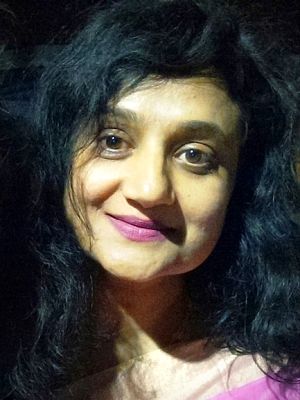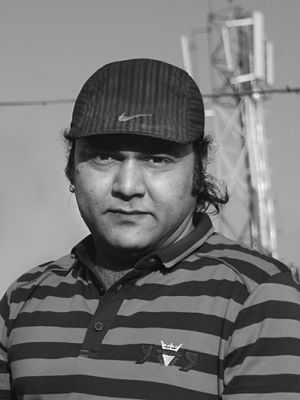FOR THE FILMS OF NURI BILGE CEYLAN
[translated poetry]
He had said, My woman, come to the lamppost when the coldest night arrives / There will
be a rock / Sit on it / Or at least set your heart on it / The fog will envelop you from all
sides / On this canvas of fog, your breath will be visible like sweeps of a paintbrush / Even
in that coldest night you’ll remove your gloves / With your cold hands touch your belly /
Near your navel you’ll find images of my caresses / those you’ll try reading in braille
A shiver will pass through the icy land of your nose
The coldest night comes only once in a year
Our coldest night will come once in our life
With my eyes closed I stand here
As promised under the lamppost
Sweeping with my hand a piece of fog
Trying to peer far across
My clothes fight the cold / The damp that descends on them is an experienced fellow /
Says in its slippery wet voice / Go home, girl… Go back home / There will be nights colder
than this / The warmth is presently away on loan
I do not know which night that will be
So I stand here from the first day of winter
My body becomes a thermometer
I hear the sound of someone coming
Whoever is coming is only fog
Whoever is coming will only be fog
My woman,
You’ve gone far away from me
Disappeared even from the sight of my
memory
That I cannot recognise your face now
That I cannot remember you
Just by one face
Things that reminded me of you
Came into being
When you left
This is how I’m bound to our past
Only an outline remains of a cold morning:
A shape filled with dots
Today is an eye
Yesterday gone by, a scene
A hazy h hangs between the two—
The niqab of fog looks good on you
![]()
नूरी बिल्गे जेलान की फिल्मों के लिए
मेरी स्त्री, जब सबसे ठंडी रात आएगी, तुम इस लैंपपोस्ट के नीचे आ जाना / यहां एक पत्थर है, तुम
इस पर बैठ जाना / न भी बैठना, तो भी अपने मन को यहां ज़रूर बिठाले रखना / चारों ओर कोहरा
होगा / तुम्हारी सांसें कोहरे के कैनवास पर ब्रश के स्ट्रोक्स की तरह होंगी / सबसे ठंडी रात में भी तुम
अपने दस्ताने उतारोगी और अपने ठंडे हाथों से अपने पेट का स्पर्श करोगी / तुम्हारी नाभि के पास मेरी
छुअन से बनी पेंटिंग्स होंगी / मेरे स्पर्श के चित्र को तुम ब्रेल लिपि में पढ़ोगी
तुम्हारे नाक की हिमभूमि पर सिहरन होगी
सबसे ठंडी रात साल में एक बार आएगी
हमारे जीवन की सबसे ठंडी रात जीवन में सिर्फ़ एक बार आएगी
मैं तब से अपनी आंखें मूंदे यहां खड़ी हूं
वादे के मुताबिक़ एक लैंपपोस्ट के नीचे
कोहरे के टुकड़े को हाथों से हटाकर
दूर तक देखने की कोशिश करती हुई
मेरे कपड़े ठंड से लड़ रहे हैं / उन पर जमा हो रहा गीलापन बेहद अनुभवी है / वह गीलापन एक गीली
आवाज़ में ही कहता है / मेरी मानो, घर लौट जाओ / अभी इससे भी ठंडी कई रातें आएंगी / गर्मास
अभी क़र्ज़े पर चढ़ी हुई रहेगी
मुझे नहीं पता, वह कौन-सी रात होगी
मैं सर्दियों की शुरुआत में ही यहां खड़ी हो जाती हूं
मेरी देह तापमान मापने वाला यंत्र बन जाती है
ऐसा लगता है, कोई इस तरफ़ आ रहा है
जो आ रहा है, वह भी कोहरा ही है
मेरी स्त्री,
तुम इतनी दूर पहुंच चुकी हो,
स्मृति की दृष्टि से भी ओझल
कि अब तुम्हारा चेहरा नहीं पहचान सकता
तुम्हें सिर्फ़ एक चेहरे से याद भी नहीं कर सकता
इस तरह बनता है अतीत से हमारा रिश्ता
कि जिन चीज़ों को देख तुम्हारी याद आती है
वे चीज़ें तुम्हारे चले जाने के बाद
वजूद में आई थीं
बस एक रेखाचित्र है सर्द सुबह का
एक आकृति है बिंदुओं से बनी हुई
आज एक आंख है
बीता हुआ कल एक दृश्य
दोनों के बीच एक धुंधला-सा ध है—
कोहरे का नक़ाब तुम पर फबता है
Translator’s Statement:
The poem “For the Films of Nuri Bilge Ceylan,” part of Geet Chaturvedi’s World Cinema series, appears in his poetry book Nyoonatam Main. It is a fine example of Chaturvedi being more a Borgesian writer who loves to play with intertextuality. He wrote his poems on Cinema after watching and meditating on various master filmmakers’ works. The poem is a delicious smorgasbord of impressions—a kind of conversation or poetic ‘jugalbandi’ held by the poet with the filmmaker—scenes from particular movies enmeshed with the improvised general mood created by the whole cinematic body of the master filmmaker. The poet’s voice keeps changing, at one level talking with the filmmaker, at the other talking with his lover, and at a much deeper level with the system. Fine experiments in incoherent form, the lines of the poem are like characters of a movie. They come as incomplete sentences and tell their incomplete stories. The completeness is derived from the many small incomplete instances that coalesce into one cohesive unit of cinematic beauty.
 Anita Gopalan is a PEN/Heim Translation Fund Grant recipient. Her translated poetry chapbook, an Anomalous Press winner, is forthcoming in 2018. Her work has appeared in Poetry International, Words without Borders, Two Lines Journal, World Literature Today, Asymptote, PEN America, Drunken Boat, Modern Poetry in Translation, Rhino, and elsewhere.
Anita Gopalan is a PEN/Heim Translation Fund Grant recipient. Her translated poetry chapbook, an Anomalous Press winner, is forthcoming in 2018. Her work has appeared in Poetry International, Words without Borders, Two Lines Journal, World Literature Today, Asymptote, PEN America, Drunken Boat, Modern Poetry in Translation, Rhino, and elsewhere.
 Geet Chaturvedi (b. 1977) is a writer of contemporary Hindi literature. He has authored seven books, including the highly acclaimed two collections of novellas, and two collections of poetry. His poems have been translated into seventeen languages. He was awarded Bharat Bhushan Agrawal Award for poetry, Krishna Pratap Award for fiction, and named one of “Ten Best Writers” of India by the reputed English Daily Indian Express. After spending sixteen years in journalism as the editor of Dainik Bhaskar, Chaturvedi spends much of his time now working on his novels Kavipriya and Ranikhet Xpress. He lives in Bhopal, India.
Geet Chaturvedi (b. 1977) is a writer of contemporary Hindi literature. He has authored seven books, including the highly acclaimed two collections of novellas, and two collections of poetry. His poems have been translated into seventeen languages. He was awarded Bharat Bhushan Agrawal Award for poetry, Krishna Pratap Award for fiction, and named one of “Ten Best Writers” of India by the reputed English Daily Indian Express. After spending sixteen years in journalism as the editor of Dainik Bhaskar, Chaturvedi spends much of his time now working on his novels Kavipriya and Ranikhet Xpress. He lives in Bhopal, India.




